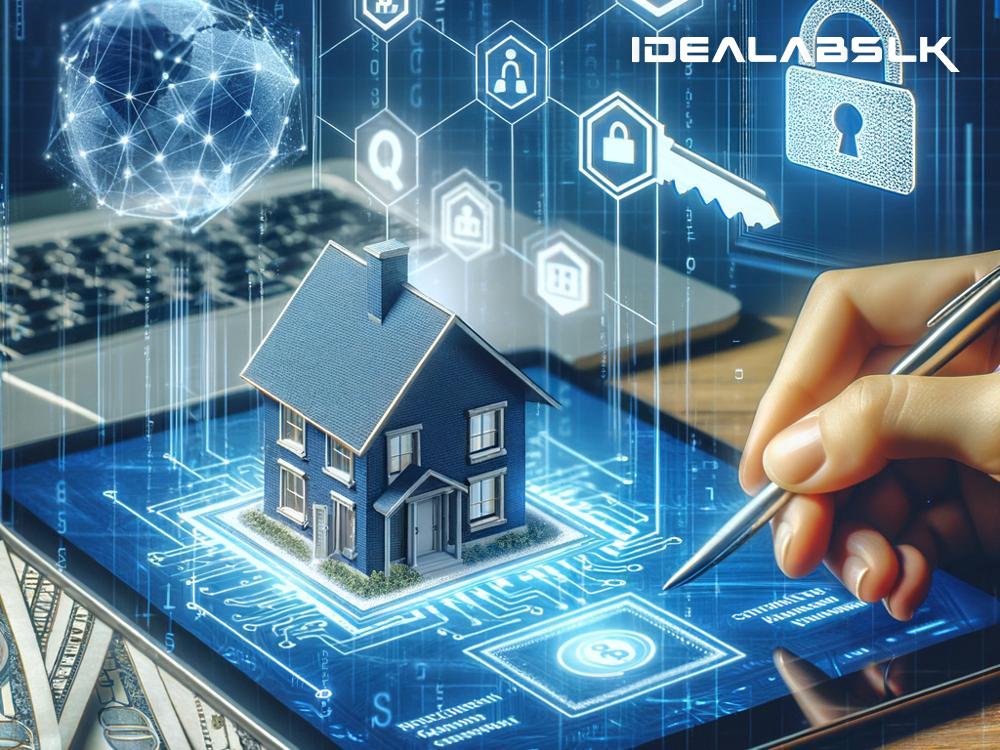Blockchain in Real Estate: Ensuring Transaction Transparency and Security
In the digital age, the traditional real estate sector is undergoing a significant transformation, thanks to the advancement in technology. One technological innovation that is making waves is Blockchain. While it's commonly associated with cryptocurrencies like Bitcoin, Blockchain's implications extend far beyond. This groundbreaking technology is now paving the way for revolutionary changes in the real estate industry, promising enhanced transaction transparency and security. But what exactly is Blockchain, and how does it achieve this? Let's delve into the details in simple English.
What is Blockchain?
Imagine a digital ledger that is accessible to numerous people across the globe simultaneously. This ledger records transactions in a series of blocks, and once a block is filled with transactions, it's linked to the previous block, forming a chain – hence, the name Blockchain. What makes Blockchain unique is its ability to ensure the integrity and security of a data record while sharing it across a network of computers. This means that once a transaction is recorded, it is nearly impossible to alter without detection, making it a secure and transparent system.
Blockchain in Real Estate: A Game Changer
Traditionally, real estate transactions involve a lot of paperwork, multiple stakeholders, and are often time-consuming and opaque. This system not only slows down the process but also leaves room for errors and fraud. Enter Blockchain – a technology capable of transforming this scenario entirely. Here’s how:
1. Enhanced Transparency
With Blockchain, every transaction is recorded on a public ledger that is open for verification by anyone in the network. This means any change or transaction concerning a property is visible, making the whole process transparent. For instance, prospective buyers can easily access the property’s history, including previous sales, pricing, and any disputes related to the property. This level of transparency builds trust among parties and reduces the chances of fraudulent activities.
2. Improved Security
The decentralized nature of Blockchain makes it a highly secure way of conducting transactions. Since the information is distributed across a network of computers rather than being stored on a central database, it's much harder for hackers to compromise the data. Additionally, Blockchain uses sophisticated cryptography to ensure that each transaction is securely recorded. This means that once a piece of information is added to the chain, altering it without the consensus of the network is practically impossible, thus safeguarding the transaction data.
3. Streamlined Transactions
One of the most significant advantages of Blockchain in real estate is the ability to streamline transactions. Normally, buying or selling property involves numerous intermediaries such as agents, lawyers, and banks, which can complicate and prolong the process. Blockchain can simplify these transactions by enabling smart contracts. These are self-executing contracts with the terms of the agreement directly written into code. They automatically enforce and execute the terms of the agreement, thereby eliminating the need for middlemen, reducing costs, and saving time.
4. Fractional Ownership
Blockchain introduces the concept of fractional ownership in real estate. This means that instead of one entity owning a property outright, multiple investors can own shares of that property. Blockchain makes it easy to divide ownership of a property into smaller, more affordable shares, opening up investment opportunities to a broader audience that might not have the capital to invest in real estate directly. This can democratize real estate investing, making it more accessible and liquid.
The Future of Real Estate with Blockchain
The integration of Blockchain into real estate is still in its infancy, but its potential is undeniable. As more people become familiar with its benefits and as the technology evolves, we can expect Blockchain to become a staple in real estate transactions. However, for this to happen, regulatory frameworks must evolve to support this new way of transacting, and all parties involved need to understand and trust the technology.
In conclusion, Blockchain has the potential to revolutionize the real estate industry by making transactions more transparent, secure, and efficient. It reduces the need for intermediaries, thereby saving time and money, and also opens up new investment opportunities. As we move forward, embracing Blockchain could be the key to unlocking a more transparent and secure future for real estate transactions.

